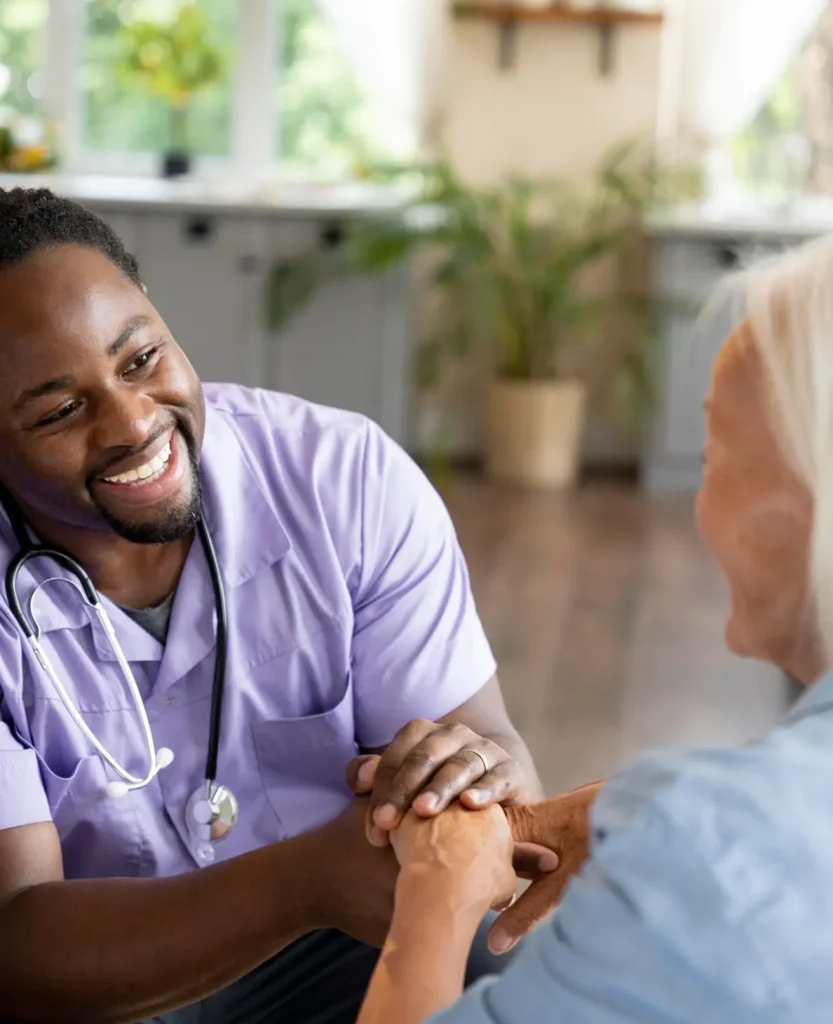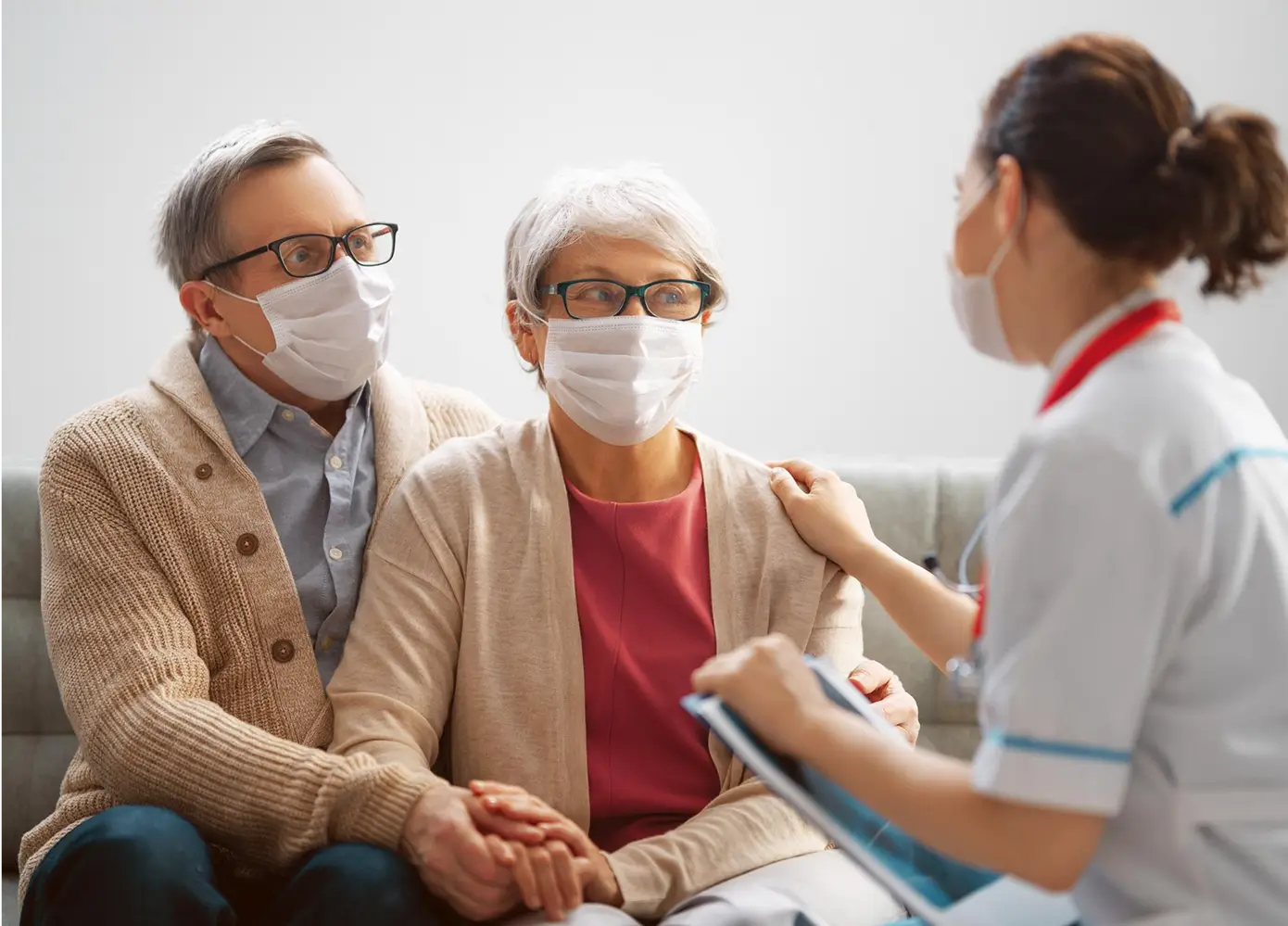Advanced Stem Cell Therapy in Dallas
–Fort Worth
- No Surgery
- Advanced Treatment
- Faster Recovery
Stem Cell Overview
NTX Regen Center offers advanced stem cell therapy to help patients recover from joint pain, arthritis, and sports injuries. Our treatments stimulate the body’s healing process to repair tissues, reduce inflammation, and restore mobility. With five locations across Texas, our board-certified doctors provide personalized care to improve your quality of life using advanced regenerative medicine.
What Is Stem Cell Therapy?
Stem cell therapy, or regenerative cell therapy, harnesses stem cells to repair damaged tissues and calm inflammation. When precisely injected into an injured area, these intelligent cells release growth factors that:
- Rebuild cartilage, tendon, muscle, and bone
- Reduce swelling and inflammatory pain mediators
- Accelerate the natural healing process
The entire procedure is completed in about 60–90 minutes, with minimal downtime and no hospital stay.

Why Choose NTX Regen Center For
Stem Cell Therapy?
- Advanced Care: Our board-certified doctors specialize in stem cell regenerative medicine, offering personalized treatment plans for your unique needs.
- Non-Surgical Treatment Options: Stem cell therapy offers a non-invasive alternative to surgery, promoting natural healing and reducing recovery time.
- Comprehensive Treatment: From initial consultation to recovery, we provide a complete care pathway, including follow-up visits to monitor progress.
- Convenient Locations: With five locations across Texas, NTX Regen Center makes it easy for you to access advanced care near you.
- Proven Results: Many patients experience significant improvement in pain relief, mobility, and overall quality of life after stem cell therapy.
Conditions Treated by Stem Cell Therapy
- Osteoarthritis of the knee, hip, shoulder & ankle
- Meniscus or rotator‑cuff tears
- Tendon and ligament injuries (Achilles, tennis elbow, ACL sprain)
- Degenerative disc disease & joint pain
- Sports‑related overuse injuries

How Stem Cell Therapy Works?
Collect
Harvest stem cells from the pelvis or a donor.
Activate
Purify, concentrate, and mix with PRP.
Inject
Ultrasound/fluoro-guided delivery to the target site.
What to Expect After Stem Cell Therapy?
Most clinics sell single injections—PRP or stem cells—then hope for the best. Yet the musculoskeletal healing cycle runs 90-180 days. Our six-month blueprint combines multiple biologic tools at the right times:
Day 1
Consultation, imaging review &
treatment planning
Bring previous imaging or medical records
Days 7-14
Procedure day: stem‑cell collection & guided injection
Arrange a ride home; mild soreness is normal
Week 2-3
Begin gentle physical therapy
Ice for 20min, 2-3x/day
Week 4-6
Swelling subsides, and pain noticeably decreases
Gradually reintroduce cardio & stretching
Months 3-6
Peak tissue regeneration & strength gains
Follow-up ultrasound & functional assessment
Benefits of Stem Cell Therapy
- Noticeable pain reduction in 2–6 weeks
- Increased joint mobility & daily function
- Little to no medication required
- Return to low‑impact exercise in 10–14 days
- Lower complication risk compared with joint‑replacement surgery
Meet Our Care Team
Board-Certified Orthopedic Spine Surgeon
- Specializes in cervical, thoracic, and lumbar spine surgery
- Fellowship-trained in spinal reconstruction surgery
- Board Certified by the American Osteopathic Board of Orthopedic Surgeons
- Published researcher in Spine and national conference presenter (NASS, SRS)
Board-Certified Pain Management & Rehabilitation Specialist
- Fellowship-trained in interventional spine & pain management
- Board Certified in Physical Medicine and Rehabilitation
- Expertise in musculoskeletal pain, neuromuscular disorders, and electrodiagnostics
- Member of AAPMR, AAP, and American Osteopathic Association
Board-Certified Radiologist & Neuroradiologist
- Board Certified in Radiology with CAQs in Interventional Radiology and Neuroradiology
- Fellowship-trained in both interventional radiology and neuroradiology
- Former Chief Resident at University of Nebraska Medical Center
- Member of ACR, RSNA, SIR, and International Spine Intervention Society
Now Offering Stem Cell Across DFW
What Our Patients Are Saying
James Miyamoto
“Dr.Bolaños and staff were amazing. And with Dr.Bolaños treatments I feel better than I have in over a decade!”
Minnie Hodge
“I wish everyone who has to go to the Dr’s office could be treated as well as pleasantly as I have been by all the staff.”
Local Guide
“Very Caring Staff. Dr. Farley was easy to understand, and very helpful in discussing.”
Frequently Asked Questions
Many people notice easing of pain within four-to-eight weeks, with joint strength and range gains continuing for several months as new tissue matures.
PRP supplies growth factors; stem-cell preparations deliver living cells that may mature into new tissue and release regenerative signals, suiting more advanced damage.
Tissue is collected under local anesthesia, processed on-site, then injected into the target area with ultrasound or fluoroscopic guidance—typically a 90–120-minute visit.
Doctors often use stem cells for moderate osteoarthritis, tendon tears, chronic inflammation and certain spine issues that haven’t improved with standard care.
Recovery is similar: brief rest for a few days, gradual movement and physiotherapy, with improvements building over four to twelve weeks.
Because it uses your own cells, rejection risk is minimal; typical side-effects are temporary soreness or bruising, and sterile technique minimizes infection risk.